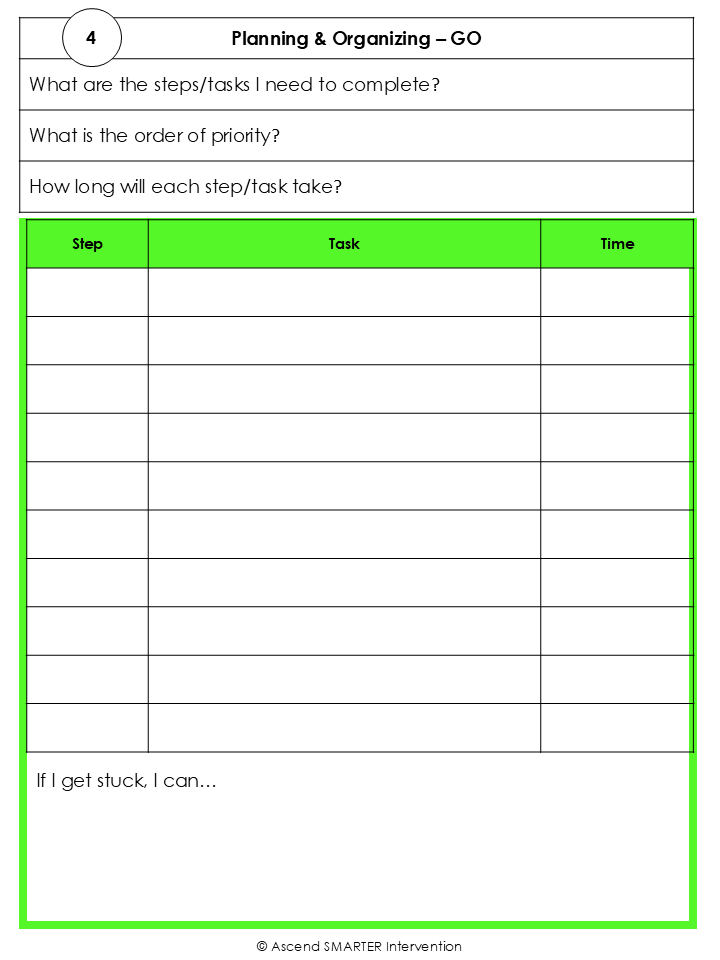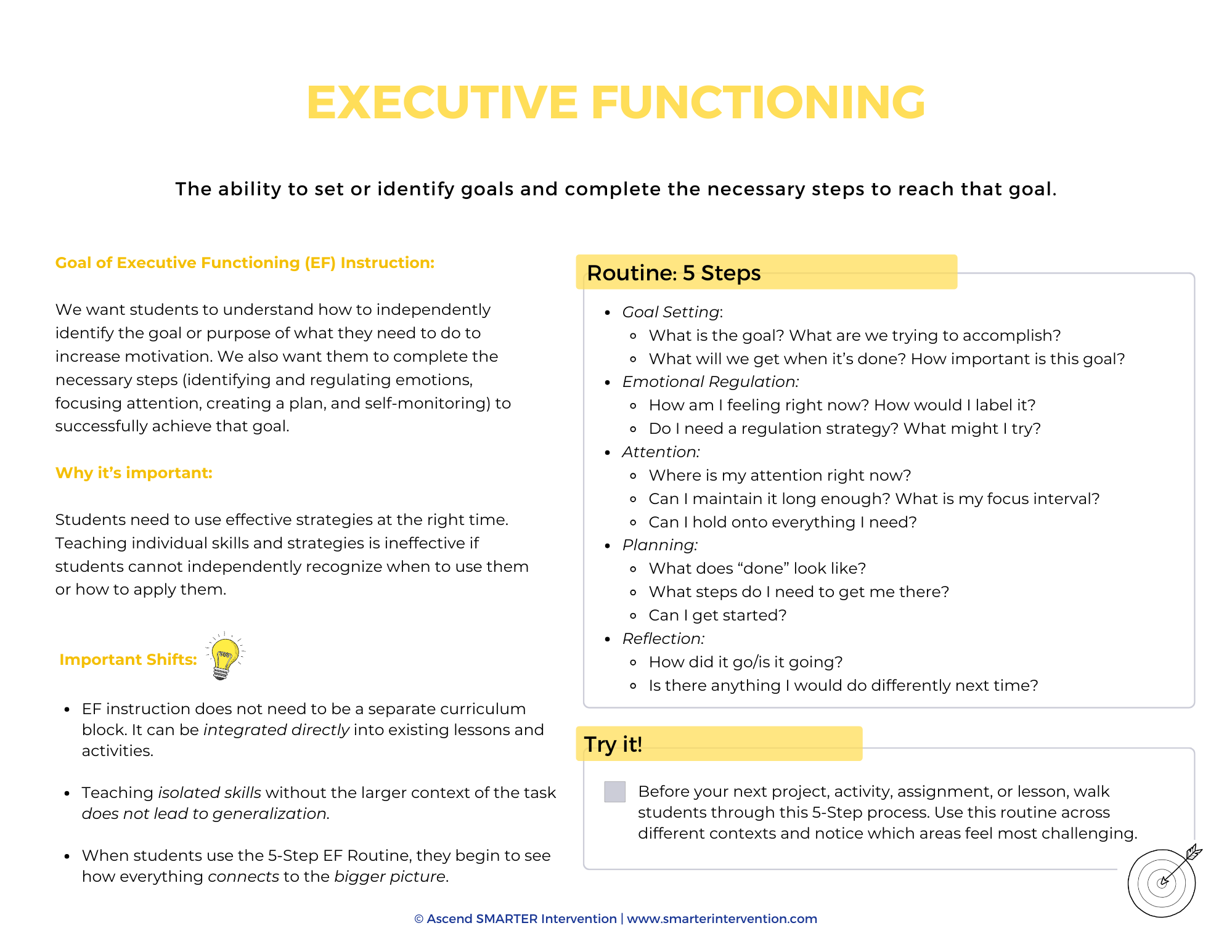Executive Functioning: Time Management
When we think about time management, procrastination is often the first issue that comes to mind. But avoiding procrastination is only one small part of a much larger executive functioning skill set.
True time management requires students to:
Understand how long tasks will take
Plan and sequence their work
Pace themselves over time
Prioritize competing demands
Within our 5-Step Executive Functioning Routine, time management lives in Step 4: Planning, alongside organization and task initiation.
Without these skills, students are far more likely to feel overwhelmed, shut down, or miss deadlines, even when they are capable of doing the work.
Time Management Starts With Awareness, Not Willpower
Many students do not yet have an internal sense of time. They may underestimate how long a task will take, start too late, or work inefficiently simply because they don’t know how to budget their time.
This is not a motivation issue. It’s a skill gap.
1. Help Students Understand How Long Tasks Take
One of the most foundational time management skills is the ability to estimate and reflect on time.
In classroom settings, this can look like:
Asking students to estimate how long a task will take before they begin
Using a visual timer during independent work
Comparing estimated time to actual time after the task is complete
Reflection questions might include:
Was my estimate accurate?
What took longer than expected?
What would I change next time?
This process builds metacognitive awareness and helps students plan more realistically in the future.
2. Teach Students How to Pace Their Work
Pacing is often assumed, but rarely taught.
Students benefit from explicit instruction in how to:
Start work on time
Work steadily rather than rushing at the end
Take intentional breaks to maintain focus
In practice, this might include:
Breaking assignments into smaller chunks with clear time goals
Using structured work–break intervals (for example, 20–25 minutes of work followed by a brief break)
Modeling how to move through a task over time, not just how to finish it
When students understand that time management is about how they work, not just when they finish, avoidance often decreases.
3. Supporting Prioritization in Academic Settings
As academic demands increase, students must learn how to prioritize tasks across classes and assignments.
Educators can support this by:
Helping students identify which tasks are most urgent
Discussing which tasks may require the most cognitive effort
Encouraging students to tackle higher-effort tasks when attention and energy are strongest
Prioritization is not intuitive for many students. It requires explicit modeling and repeated practice.
4. Minimizing Distractions Without Removing Supports
Time management and attention are closely connected. When students are constantly redirecting their attention, efficient use of time becomes much harder.
In the classroom, we can focus on:
Setting clear expectations for independent work time
Teaching students how and when to use tools appropriately
Distinguishing between supports that help attention and distractions that interfere with it (is this a toy or a tool?)
For example:
Flexible seating or movement tools can support focus when they’re not a distraction (this can be a balance for sure!)
Technology can be a helpful tool, or it can also be a distraction (again, finding balance here!)
Reframing Time Management
Time management is not about doing more faster. It’s about planning realistically, pacing intentionally, and prioritizing thoughtfully. When students struggle with time management, it’s likely because they just haven’t quite figured out how long things take (I am going to be honest, I still haven’t quite figured out how long things are going to take most days!). They are still learning how to plan and use time in ways that match the demands placed on them. Me too!
Want a simple way to support this process?
Check out our FREE Executive Functioning Routine!
In this guide, we:
Break down goal setting, emotional regulation, attention, planning, and reflection into steps
Explain the importance and goal of including EF in your instruction
Provide simple steps and prompts you can use with your students
This routine is designed for educators who are ready to take this knowledge into practical, grounded implementation.



